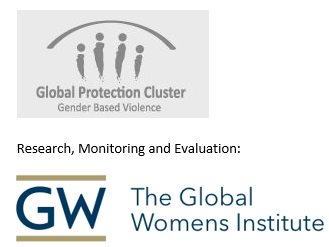- Article 22 of the United Nations Declaration on the Rights of Indigenous Peoples declares that: “States shall take measures, in conjunction with indigenous peoples, to ensure that indigenous women and children enjoy the full protection and guarantees against all forms of violence and discrimination.” (United Nations, March 2008,)
- In order to advance the protection of women and girls who are indigenous, ethnic or religious minorities from violence, their marginalized status both as female and as indigenous, ethnic or religious minorities must be recognized and addressed.
- Conduct full assessments and situational analyses of the needs and challenges faced by indigenous women and children and ethnic and religious minorities. Consult with minority women on the particular risks and dangers that they face. Coordinate with any and all existing programmes designed to address the needs of minorities (Kostadinova et. al., 2010,).
- Build capacity of NGO staff and relief agencies by providing trainings and raising awareness about the specific vulnerabilities and risks faced by minorities and indigenous peoples (Kostadinova et. al., 2010,).
- Promote the participation of minorities and indigenous people in all aspects of assessment, program design, implementation, monitoring and evaluation (Kostadinova et. al., 2010,).
- Make efforts to reach out to and include minority and indigenous women in leadership positions in their communities and governments to ensure adequate representation. Provide trainings to women and girls about their rights as indigenous people or ethnic/ religious minorities (Chapman, 2008,).
Example: The Minority Rights Group (MRG) Iraq and Somalia Programme aims to promote the human rights and fundamental freedoms of ethnic and religious minorities in Iraq and Somalia. It strengthens the capacity of civil society organizations to report and lobby on violations of minority rights in these two countries and promotes their participation in decision-making processes at local, national and international level. Ethnic and religious minorities have experienced a long history of discrimination in Iraq and Somalia, discrimination which has escalated into patterns of gross human rights violations during times of conflict. In addition to being less able to protect themselves than more powerful communities, minorities have been targeted specifically for human rights violations for ethnic or religious reasons. The programme seeks to strengthen the capacity of emerging civil society organizations and human rights activists representing vulnerable minorities in Iraq and Somalia and to promote their participation in decision-making processes. Main activities in Iraq and Somalia include capacity-building workshops, small grants for non-governmental organizations working with women and small minorities, publishing of thematic reports and annual minority rights reports based on a monitoring system of human rights abuses, and national, regional and international advocacy plans. (Adapted from Minority Rights Group International)
Additional Tools
Minority Rights Group International campaigns worldwide with around 130 partners in over 60 countries to support disadvantaged minorities and indigenous peoples through training and education, legal cases, publications and the media.
- See guides and practical handbooks for members of minority and indigenous communities and activists working on their behalf, providing insight into the workings of international bodies such as the United Nations and the European Union.
- See trainings aimed at minorities and those working with them, written by experts in the field.
